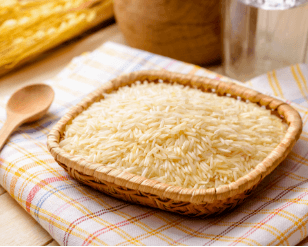Exploring the Benefits and Nutritional Options for Those Avoiding Gluten
In recent years, the conversation around gluten has intensified, with many people choosing to avoid it for various reasons. Whether it’s due to personal preference, dietary choices, or a desire for healthier eating habits, there’s a growing interest in gluten-free grains. These grains not only cater to those avoiding gluten but also offer a range of nutritional benefits that can enhance any diet. Let’s explore some of the most popular gluten-free grains and the advantages they bring to the table.
Understanding Gluten-Free Grains
Gluten is a protein found in wheat, barley, and rye, which means that foods made from these grains contain gluten. For those looking to explore gluten-free options, numerous alternatives are available. Gluten-free grains include quinoa, rice, millet, buckwheat, and amaranth, among others. These grains can be enjoyed in various forms, such as whole grains, flour, or even as part of salads and side dishes.
Nutritional Powerhouses
One of the most compelling reasons to include gluten-free grains in your diet is their impressive nutritional profiles. Many gluten-free grains are rich in essential nutrients, including fiber, vitamins, and minerals.
- Quinoa is particularly noteworthy for its high protein content, making it an excellent choice for those seeking plant-based protein sources. Additionally, it is rich in magnesium, iron, and B vitamins, contributing to overall well-being.
- Brown rice, a staple in many diets, provides a good source of complex carbohydrates and fiber. It helps keep you feeling full and energized, making it a fantastic base for various meals.
- Millet, often overlooked, is packed with nutrients like magnesium and phosphorus. It’s also easy to digest, making it a gentle option for sensitive stomachs.
Culinary Versatility
One of the best things about gluten-free grains is their versatility in the kitchen. They can be used in numerous dishes, from breakfast to dinner and everything in between. Here are some creative ideas to incorporate them into your meals:
- Breakfast Bowls: Start your day with a warm bowl of quinoa or amaranth topped with fruits, nuts, and a drizzle of honey. This delicious breakfast provides a great energy boost to kickstart your day.
- Salads: Use cooked millet or buckwheat as a base for vibrant salads. Add seasonal vegetables, a protein source like grilled chicken or chickpeas, and a flavorful dressing for a wholesome meal.
- Soups and Stews: Add gluten-free grains to soups and stews for added texture and nutrition. Quinoa works particularly well in vegetable soups, while rice can add heartiness to stews.
Healthful Alternatives
Choosing gluten-free grains can also help diversify your diet. Many people find that they feel more energetic and satisfied when they include a variety of grains. For instance, swapping out traditional pasta for a gluten-free alternative made from brown rice or quinoa can provide a new flavor and texture experience while boosting your nutrient intake. Incorporating gluten-free grains into your diet can complement a healthy lifestyle, and adding multivitamins like Cellsentials can help support general health maintenance and well-being.
Moreover, experimenting with different grains can lead to discovering new favorites. The rich, nutty flavor of farro or the fluffy texture of couscous can be a delightful surprise for those new to gluten-free options.
Enhancing Digestive Health
Incorporating gluten-free grains into your diet may support digestive health, primarily due to their fiber content. Fiber is essential for maintaining a healthy digestive system, as it helps regulate bowel movements and promote the growth of beneficial gut bacteria. Whole grains like quinoa, brown rice, and millet are excellent sources of dietary fiber, which can enhance your overall gut health.
Delicious and Beneficial
Exploring gluten-free grains opens up a world of culinary possibilities while providing essential nutrients that support a balanced diet. From quinoa’s protein power to the fiber-rich benefits of brown rice, these grains offer something for everyone. Whether you are avoiding gluten for personal reasons or simply want to enhance your nutrition, incorporating these grains into your meals is a delicious and beneficial choice. So, next time you’re planning your menu, consider adding a gluten-free grain to the mix. Your taste buds and body will thank you!
Keep an eye for more latest news & updates on USA Upmagazine!






